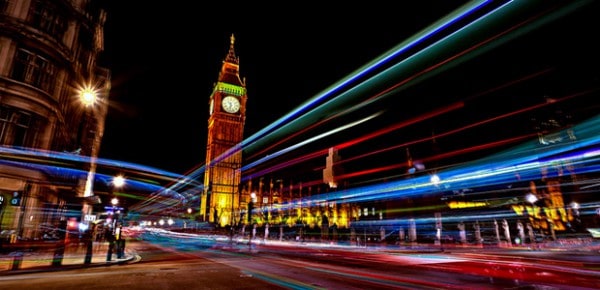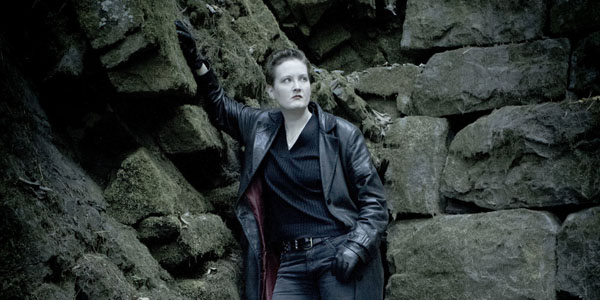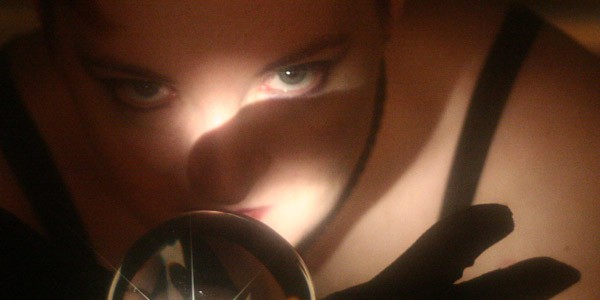
I find it fascinating that, in discussions of urban fantasy as a genre, the first word of the term is so rarely mentioned.
Humanity now lives in an age where more than half the world’s population lives in an urban rather than a rural environment. It should be no surprise that this dramatic shift in how we live as a species should be reflected in both our fantasy tales about the supernatural world and our magick. And, of course, the one feeds into the other.
London – cruel as a harlot’s curse.
-Caliban, Penny Dreadful
I’ve found that the very best urban fantasy series have a tendency to let the cities they inhabit become one of the voices of the tale — the city itself becomes a character as significant to the telling as any person described therein. The Chicago of Jim Butcher’s Harry Dresden books, the mirror-of-Hell Los Angeles of Richard Kadrey’s Sandman Slim series… these and many other books take the personality of their setting and have it enrich the tale as a whole.
London’s my city. I was born just outside it (in a town called Gravesend, right on the shore of the River Thames) – and as soon as I was old enough, I moved there. Though I’ve not lived in London for some time, I visit it whenever I can. The Smoke got into my blood like no other place – and its distinctive character was certainly an influence on how I interpret and practice urban magick.
There’s no shortage of London-set fantasy novels, but of all the ones I’ve read, there are three series in particular that portray the soul of the place so well that reading them is almost as enriching as being there – the Peter Grant series by Ben Aaronovitch, Kate Griffin’s Matthew Swift and Magicals Anonymous sequence, and newcomer Paul Cornell’s James Quill series, whose second book was just released.
Each of these series draws on what I would say are the main characteristics of London’s soul. It’s old — continually inhabited since before Roman times; it’s powerful — but nowhere near as much as its past as the heart of an empire; it’s stubborn — enduring centuries of hardship and prosperity, adapting to huge changes in population and traumas ranging from plague to fire to Nazi bombs to the very modern stresses of wealth inequality. London changes — it has to — but there’s some core of its personality that always remains.
Of course, London as a whole is the sum of its parts, none of which are quite alike — the genius loci of Camden differs greatly from those of Catford and Chelsea. But each also touch the greater gestalt of the place. Inevitably, the best way to grasp the specific psychogeography of a place is to walk its streets.
It was walking London’s streets, often at night, that gave me my first taste of the specific magickal charge a great city possesses. Falling into the site-specific synchronicities of the Situationist dérive, I found underlying patterns to the streets; the shop signs, blurred graffiti, and hidden backstreet secrets opened their knowledge to my wanderings. Old ghosts and new haunted my steps, filling me with their chi. The City seemed to speak to me of its sacred intertwined currents.
Each of these book series deals with some aspect of just how one governs and polices the occult powers of such a complex environment. Like most books in the urban fantasy genre, they use the core idea of a supernatural world running parallel with the mundane reality most inhabitants live in, which offers parallels and echoes to it. Both Aaronovitch and Cornell use the crime genre as their entry point: Peter Grant and James Quill start out as ordinary coppers in the Metropolitan Police (Grant is initially a uniform constable, Quill a detective), who become aware of the deeper levels of their town as a result of a case they fall into. Matthew Swift, a talented magician whose personality is accidentally fused with one of the new deities of our age: the Blue Electric Angels that sing information, is given the position of the Midnight Mayor, the supposed leader of London’s hidden governance. None of them are especially good at their new roles at first, but they learn quickly. At least, they learn enough to survive. And it’s London itself that teaches them.
I swear to God
In this light and on this evening
London’s become
The most beautiful thing I’ve seen.-Editors, “In This Light And On This Evening“
Each series emphasises a different aspect of London to build its magick from: Griffin finds spirits in every aspect of the town, from street demons made from rubbish to the Glass God newly-born from the skyscrapers of the City; Aaronovitch draws principally on London’s rivers and tributaries (his gods of the Thames and related waterways are, in a cleverly apt modern note, mostly mixed-race but utterly London in character); Cornell’s books tell of a clash between the older London magick (James Quill’s team literally refer to magick items as “having more London in them”) and the power of the new plutocrat class that seek to buy London itself, body and soul.
These books have changed the way I look at London, and how I practice magick there. The might of Old Father (and, according to Aaronovitch, Mother) Thames and its offshoots feels different to me now. The black dragons that guard the borders of the City of London, with their motto of Domine Dirige Nos (“Lord, Guide Us”), watch me with the steady protective gaze of Griffin’s Aldermen. The weight of London’s symbology (Big Ben, red buses and telephone boxes and other symbols less — pardon the pun — hackneyed), now carry new significance that can be accessed, talked to and worked with. Those old sacred tracks I’d walked for years seem refreshed, layered with extra knowledge: as though the mental head-up display through which I perceive a lot of my magick had been upgraded.
These urban fantasies have given me new eyes to see a city I love and know well.
Which books have reopened your eyes to your town?
Further reading
There are many other works which have informed my perception of London’s magick – of those not mentioned above, I’d especially recommend Mike Carey’s temporarily-on-hiatus Felix Castor series of books, Alan Moore and Eddie Campbell’s psychogeographical graphic novel From Hell and, of course, the tales of John Constantine: Hellblazer. Aficionados of the London Underground system will, of course, need to read Neil Gaiman‘s Neverwhere.
Image credit: Simon and His Camera








